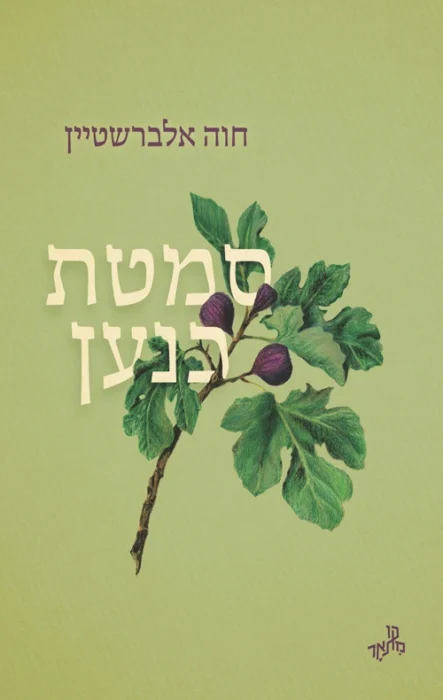For English review, please scroll down.
סמטת כנען הוא ספר ביוגרפי למחצה, שמרכיביו הם מקטעים, אפיזודות קטנות, שנוגעות בחייה האישיים והמקצועיים של חוה אלברשטיין. זה לא סיפור לינארי ולא רומן מגובש, אלא רצף תחנות: ילדותה בבית של הורים ניצולי שואה, תקופת הצבא, המפגש עם עולם המוזיקה, והדרך הארוכה שעשתה עד שהפכה לאחת הקולות המזוהים ביותר עם התרבות הישראלית.
הספר נערך על ידי חיים וייס, שסיפרו ספרים מחוקים הוא בעיני אחד הספרים המרשימים שיצאו בהוצאת אפרסמון. אולי משום כך הציפייה ממנו כאן הייתה גבוהה. אבל בשונה מהספר ההוא, סמטת כנען אינו מצליח ליצור מהחומרים רשת מהודקת. כל אפיזודה מעניינת בפני עצמה, אבל החיבור ביניהן מתרופף, והתחושה היא של אוסף ולא של מארג.
אלברשטיין מדברת לא מעט על אהבתה לשפת היידיש, על המפגש שלה עם התרבות הזו ועל המאמץ שלה להחזיר אותה לשיח. יש קטעים שמצליחים לרגש, לחשוף היסטוריה תרבותית ולהעניק הצצה לעולם שנכחד כמעט, אך יש גם קטעים שנשארים יבשים ולא מצליחים להתרומם מעבר לתיאור אישי. המאמץ עצמו ראוי להערכה, אך הוא מתפזר בין עוד ועוד סיפורים ואינו מתגבש למשהו רחב יותר שיכול להחזיק את הספר.
זהו ספר שיכול לעניין מאוד את מי שרוצה לעקוב אחרי תחנות הדרך המקצועיות של אלברשטיין, או לקבל הצצה למחשבות שלה על יצירה, שפה ומוזיקה. אבל מי שמחפש חיבור רגשי, או ביוגרפיה שנטווית לסיפור שלם עם קצב פנימי, עלול להרגיש שהספר נשאר בגדר קטעים שלא הפכו ליצירה אחת.
בסופו של דבר, סמטת כנען משאיר טעם של סקרנות, אבל לא של סיפוק. הוא מאפשר הצצה לאומנית גדולה, אך לא בהכרח מפגיש אותנו איתה באופן אינטימי.
סמטת כנען/ חוה אלברשטיין
הוצאת אפרסמון, 2025, 226 עמ'
דירוג SIVI –
איכות אודיו –

Samat Knaan by Chava Alberstein is a semi-biographical book composed of fragments and small episodes that touch on both her personal and professional life. It is not a linear narrative and not a fully cohesive memoir, but rather a series of stations: her childhood as the daughter of Holocaust survivors, her military service, her first steps into the music world, and her long journey to becoming one of the most recognizable voices in Israeli culture.
The book was edited by Haim Weiss, whose Erased Books I consider one of the most impressive works published by Afarsemon. Perhaps for that reason, my expectations here were high. Yet unlike that work, Samat Knaan fails to weave its material into a tight fabric. Each episode is interesting on its own, but the connections between them loosen, leaving the impression of a collection rather than a unified story.
Alberstein devotes considerable space to her love for Yiddish, to her engagement with this language and culture, and to her efforts to revive it in the Israeli sphere. Some passages are genuinely moving, opening a cultural and historical window. Others remain flat, too personal or too dry to carry narrative weight. The effort itself is admirable, but it disperses among too many anecdotes and does not crystallize into a broader vision.
This book may appeal to those who want to follow Alberstein’s professional milestones or to hear her reflections on creation, language, and music. However, readers seeking a strong emotional connection or a memoir that unfolds into a cohesive narrative may find that the book remains a sequence of fragments rather than a single, compelling life story.
In the end, Samat Knaan leaves a taste of curiosity more than satisfaction. It offers glimpses of a great artist, but not necessarily the intimacy that brings her close.
לגלות עוד מהאתר Sivi's Books
Subscribe to get the latest posts sent to your email.

